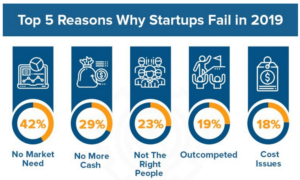In today's rapidly evolving business landscape, the entrepreneurial mindset is more critical than ever. This mindset, characterized by innovation, resilience, and a proactive approach, is not just for those aiming to start their own businesses. It’s a crucial skill set that benefits anyone pursuing a career in business. Here's why integrating the entrepreneurial mindset into an Introduction to Business course can set students on the path to success.
Definition of the Entrepreneurial Mindset
The entrepreneurial mindset is a way of thinking that enables individuals to identify opportunities, overcome challenges, and innovate continuously. It involves a combination of traits such as creativity, risk-taking, adaptability, and a relentless drive to achieve goals. Entrepreneurs view setbacks as learning experiences rather than failures, and they are adept at navigating uncertainty.
Characteristics of Successful Entrepreneurs
Successful entrepreneurs share several key characteristics. They are visionary thinkers who can see potential where others see obstacles. They possess a high tolerance for risk and ambiguity, allowing them to pursue bold ideas despite uncertainties. Persistence is another hallmark; entrepreneurs often face numerous rejections before achieving success but remain undeterred. Additionally, they are excellent problem-solvers, able to think on their feet and pivot when necessary. Effective communication and leadership skills also set them apart, enabling them to inspire and mobilize teams towards a common goal.
Benefits of an Entrepreneurial Approach in Various Business Contexts
Adopting an entrepreneurial mindset can provide significant advantages across various business contexts. For employees, it can lead to greater job satisfaction and career progression by fostering a proactive approach to problem-solving and innovation. In management, it can drive business growth and adaptability, essential for navigating today's fast-paced market changes. Organizations that cultivate entrepreneurial thinking among their staff often enjoy enhanced creativity, improved productivity, and a competitive edge in their industry.
Case Studies of Entrepreneurial Success Stories
Consider the case of Sara Blakely, the founder of Spanx. With no background in business and only $5,000 in savings, Blakely revolutionized the hosiery industry through her innovative thinking and determination. Her story exemplifies how an entrepreneurial mindset can turn a simple idea into a billion-dollar business. Another example is Elon Musk, whose ventures like Tesla and SpaceX illustrate the power of vision, risk-taking, and relentless pursuit of ambitious goals. These stories inspire and demonstrate that entrepreneurial success is attainable with the right mindset.
Tips for Developing an Entrepreneurial Mindset
Developing an entrepreneurial mindset involves cultivating certain habits and attitudes. Firstly, embrace curiosity and continuous learning. Stay informed about industry trends and seek out new knowledge and skills. Secondly, develop resilience by viewing failures as opportunities to learn and improve. Thirdly, practice proactive problem-solving by anticipating challenges and thinking of innovative solutions. Networking is also crucial; surround yourself with like-minded individuals who can provide support and inspiration. Lastly, set clear, ambitious goals and remain flexible in your approach to achieving thHow Business Education Can Foster Entrepreneurial Thinking
Business education plays a pivotal role in fostering an entrepreneurial mindset. Introduction to Business courses should incorporate real-world case studies, experiential learning opportunities, and project-based assignments that encourage creative problem-solving and innovation. Encouraging students to engage in entrepreneurial activities, such as starting a small business or participating in business plan competitions, can provide valuable hands-on experience. Moreover, inviting successful entrepreneurs to share their experiences can inspire and provide practical insights.
Integrating the entrepreneurial mindset into an Introduction to Business course is essential for preparing students for the dynamic world of business. By fostering traits such as creativity, resilience, and proactive problem-solving, we can equip future business leaders with the tools they need to thrive in any business environment.

Business in Action
Business in Action cultivates an entrepreneurial mindset by engaging students with real-world challenges and encouraging innovative problem-solving. Through experiential learning, such as case studies and project-based assignments, students develop key entrepreneurial traits like creativity, adaptability, and resilience. The course emphasizes proactive thinking, urging students to identify opportunities and navigate uncertainties confidently. By analyzing successful entrepreneurs' stories and participating in entrepreneurial activities, such as business plan competitions, students gain hands-on experience and inspiration.
Business in Action fosters a growth mindset, teaching students to view setbacks as learning opportunities and to persistently pursue their goals. This holistic approach prepares students not only to launch their ventures but also to excel in any business career, equipped with the skills to drive innovation and lead in a rapidly changing business landscape.
Read more
 Look beyond the economic forecasts and revenue reports and there is a bounty of interesting facts and figures.
Look beyond the economic forecasts and revenue reports and there is a bounty of interesting facts and figures.
 Many Americans dream of starting a business and — despite recent economic downturns — they continue to pursue this dream more than ever.
Many Americans dream of starting a business and — despite recent economic downturns — they continue to pursue this dream more than ever.
 "
" Business in Action, 10th Edition
Business in Action, 10th Edition